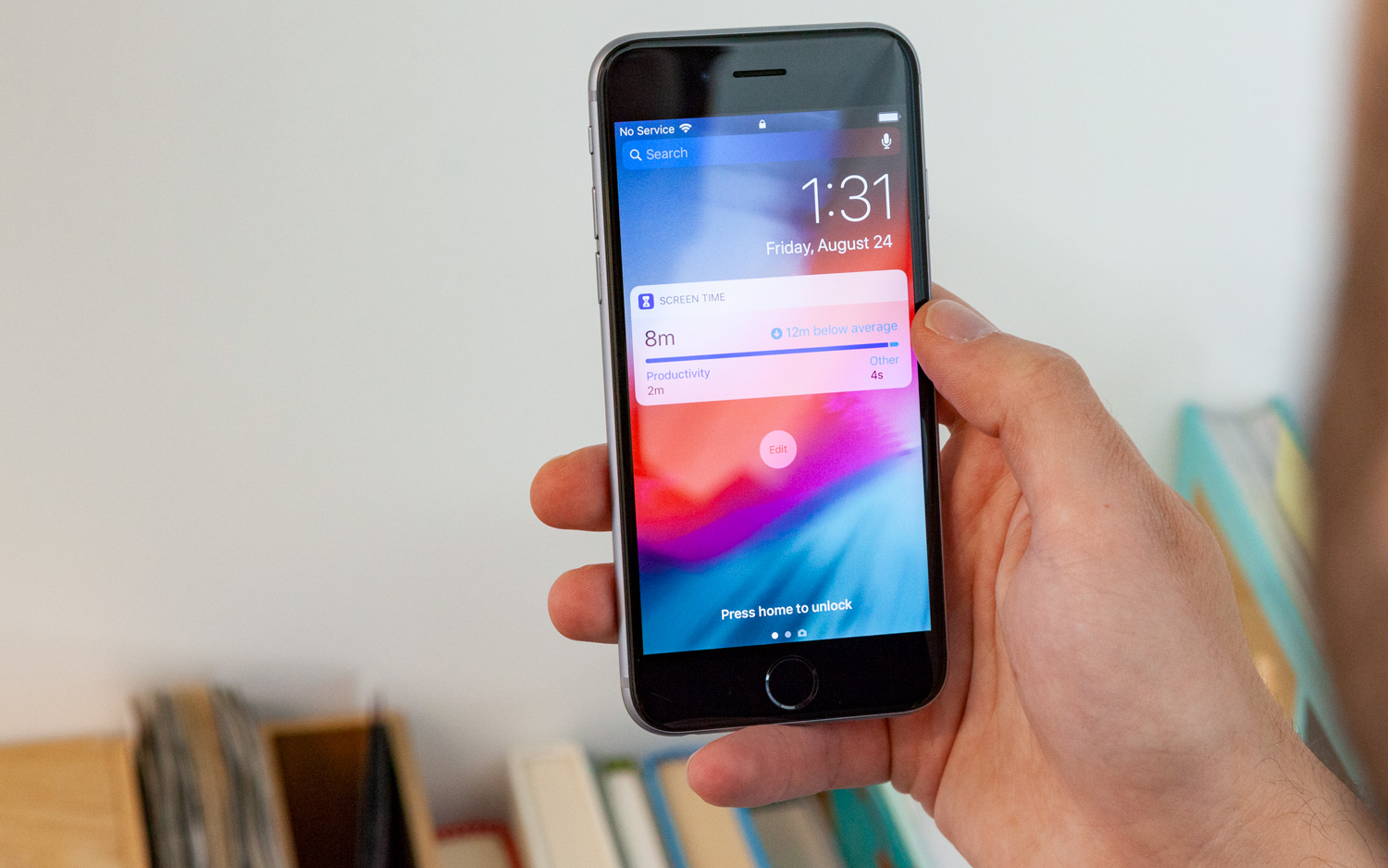iOS 12 Beta vs iOS 11 Speed Test: Expect Modest Gains
We put an iPhone 6S through various speed tests on the iOS 12 Beta and iOS 11 to see how the update gets on with older devices.
There’s a new version of iOS on the horizon, and it promises to make your current iPhone faster — even if that phone is a few years old.
Longtime iPhone users know how this tale usually ends. It’s not abnormal for new iOS releases to cause issues for particularly dated models that lack the processing power and RAM to offer a smooth experience on par with Apple’s freshest hardware.
However, Cupertino is really driving home this point about improved performance on less powerful iPhones with iOS 12. It was actually the very first talking point for Apple’s Craig Federighi when he took the stage at WWDC in June to unveil iOS 12 to the masses.
Claiming that apps launch faster and CPUs run more efficiently is one thing; it’s another thing to prove it. So we decided to take matters into our own hands, timing a number of processes in the latest version iOS 11 and comparing that to what we observed with iOS 12. These results reflect testing with iOS 12 Beta 3, and we plan to test again once Apple releases its updated OS to the general public. Here’s what we found.
- More: A fast VPN can help you get the most from your internet connection
Some apps launched faster
Here’s the good news: Some apps in iOS 12 will start up faster than they used to on iOS 11. According to Apple, the company witnessed up to 40 percent quicker launch times when using an early version of the new software on an iPhone 6 Plus.
For our testing, we used a three-year-old iPhone 6S. And although iOS 12 didn’t prove snappier in every instance, it did surprise us occasionally. For example, Facebook launched in half the time — 2 seconds on iOS 11, compared to a little more than 0.9 seconds on iOS 12. Firing up the Geekbench app also took about half the time (0.78 seconds versus 1.36 seconds), while the keyboard popped up about a full second faster in iOS 12 when we attempted to jot something down in the Notes app.
Although iOS 12 didn’t prove snappier in every instance, it did surprise us occasionally.
That said, not every app displayed these improvements. In fact, some fared worse. Fortnite took an extra 7 seconds to reach the main menu past the lengthy initial load — 23.57 seconds on iOS 11, compared to 29.93 seconds on iOS 12. Google Drive needed another second to sort itself out on the new software, going from 1.23 seconds on iOS 11 to 2.31 seconds on iOS 12. And the new Stocks app, rebuilt from the ground up for iOS 12, launched precisely as fast as its predecessor: 1 second in both instances.

Benchmarks stayed the same
Next, we took to our go-to benchmarking apps — Geekbench 4 for overall performance and 3DMark’s Sling Shot Extreme Unlimited for graphics.
In spite of some of those speedier app launches, neither version of iOS produced results that were significantly better than the other. The device’s Geekbench multi-core score rose about 40 points, from 4,459 on iOS 11 to 4,503 on iOS 12. Meanwhile, 3DMark was imperceptibly faster — 1,989, compared to 1,947.
To some, those will be valid gains. The thing is, benchmarks typically vary from test to test, and when they’re run in succession, results are rarely ever identical. So we wouldn’t regard this as an example of iOS 12 being appreciably faster.
We then turned to our Adobe Premiere Clip video encoding test, where we reprocess a 4K file at 1080p resolution and add some visual effects. Our iPhone 6S running iOS 12 was a little more than 4 seconds faster on iOS 12. This is a similarly modest improvement, but given that we’re talking about a real-world use case here — and a processor-intensive one at that — the results are still encouraging.
MORE: The One iPhone Trick Everyone Needs to Know
Unlocking is no quicker
Finally, we wanted to see if Apple was able to speed up something we do on our phones more often than anything else: fingerprint unlocking. The iPhone 6S’ Touch ID sensor was already quite fast on iOS 11, taking 0.89 seconds to get us past that lock screen. Apple didn’t cite any gains here, but we figured it was worth taking a look.
As it turns out, iOS 12 found little room for improvement. We timed .82 seconds to get into the handset on the beta software. That may not be a significant advantage on its own, though one could argue it could add up over time. Fingerprint scanning technology has gotten a little faster over the last three years, but ultimately that seems down to progress in hardware, not software.
Bottom Line
By the time a shipping version of iOS 12 reaches your iPhone, there’s a good possibility things could change — hopefully favorably — compared to the results we’re seeing from our beta device now. Additionally, more recent betas may behave a little differently compared to the one available when we initially conducted our tests. (One beta even got revoked by Apple because of exceptionally poor performance.)
However, we’re encouraged by what iOS 12 has shown us in its beta state. No, it won’t take years off of your aged iPhone’s life, and the “up to” caveat in Apple’s speed claims is definitely something you should keep in mind as you’re getting to grips with what the new software can do. But iOS 12 doesn’t appear to slow many things down either, and when you’re dealing with updates on old hardware, that’s a small victory in and of itself.
Sign up to get the BEST of Tom's Guide direct to your inbox.
Get instant access to breaking news, the hottest reviews, great deals and helpful tips.
Adam Ismail is a staff writer at Jalopnik and previously worked on Tom's Guide covering smartphones, car tech and gaming. His love for all things mobile began with the original Motorola Droid; since then he’s owned a variety of Android and iOS-powered handsets, refusing to stay loyal to one platform. His work has also appeared on Digital Trends and GTPlanet. When he’s not fiddling with the latest devices, he’s at an indie pop show, recording a podcast or playing Sega Dreamcast.
